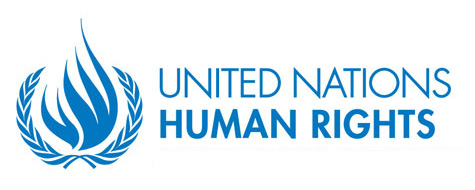Human rights are inherent to all human beings. They are defined and established in more than 80 international legal instruments1 and define the fundamental protections of human dignity, needs, and freedoms, such as food, housing, privacy, personal security, and democratic participation.
Since the adoption of the Universal Declaration of Human Rights (UDHR) in 1948, the responsibility to protect human rights has primarily fallen on governments. Beginning in the early 2000s, however, it became increasingly clear that the freedoms enshrined in the framework could also be violated—and promoted—by the private sector.
In 2011, the UN Human Rights Council unanimously endorsed the UN Guiding Principles on Business and Human Rights (Guiding Principles), the first international instrument to assign companies the responsibility to respect human rights. The Guiding Principles state that governments must put in place good policies, laws, and enforcement measures to prevent companies from violating rights; that companies must refrain from negatively impacting rights even when governments are failing to create or enforce necessary laws; and that victims of corporate abuses must have access to effective remedy. As part of this responsibility, the Guiding Principles require companies to undertake due diligence to identify and manage their negative human rights impacts.
This primer identifies the 10 most relevant, urgent, and probable human rights impacts for businesses operating in the financial sector. The information here is gathered from BSR’s direct engagement with financial sector companies, as well as our 25 years of experience helping companies in all sectors manage their human rights risks.
The financial sector comprises a wide range of businesses and activities, from asset owners and managers to private equity, venture capital, and commercial banking. While each of these sub-sectors will have its own human rights profile and challenges, this brief highlights universal risks for companies operating in finance.
Top Human Rights Risks
1: Discrimination in Lending Practices
Lending practices contain human rights risks regardless of their size or scale. As seen in the subprime mortgage crisis, individual brokers may target minority borrowers for loans they are unlikely to afford in the long term. Similarly, entire lending institutions may deny customers access to finance based on race, religion, or gender.2 As loans are increasingly approved or denied by algorithms, financial models have the potential to perpetuate, exacerbate, or mask discrimination.3
2: Customer Due Diligence
All financial institutions, large and small, should engage in environmental, social, and governance due diligence before issuing loans. Whether dealing with an individual client, a small business, a multinational enterprise, or a government entity, the Guiding Principles clearly state that companies must examine all their relationships—including those with their customers—for potential human rights impacts. Lending to customers without first examining their social and environmental records may result in the facilitation of gross human rights violations. This may manifest as financing governments that abuse their citizens or accelerating the growth of a company that exploits its workers.
Reference: UDHR Articles
1-27
3: Sector Due Diligence
Beyond customer due diligence, financial sector companies should conduct sector due diligence to ensure that their investments in companies, infrastructure projects, or other entities do not contribute to human rights violations. Sector due diligence should consider operation-specific impacts—such as a mining project that displaces local residents—as well as the geographic context in which the investment will take place. The potential impacts of failing to conduct sector due diligence are as wide ranging as those outlined in risk 2.
Reference: UDHR Articles
1-27
4: Bribery and Corruption
Corruption is pervasive in large-scale projects that seek outside funding, especially those taking place in autocratic countries, carried out by state-owned enterprises, or overseen by politically connected individuals.4 Corruption and bribery profoundly affect vulnerable communities—either by misdirecting funds that could be spent on healthcare, education, or other public goods, or by preventing participation in the democratic process. Financial sector firms should ensure that any engagement in high-corruption contexts proceed according to international norms of transparency and accountability.
5: Large-Scale Infrastructure and Land Developments
Project finance requires robust due diligence on issues involving land rights, displacement, and forced relocations, particularly in countries where access to remedy for these violations is curtailed or nonexistent. In contexts with a high risk for corruption and weak rule of law, companies should ensure that infrastructure projects are built only under strict adherence to international norms regarding consultation, compensation, and population relocation.
6: Commodities Investing
Trading and investing in commodities, particularly staple foods or other agricultural products, can drastically affect the price of food, water, and healthcare, and could restrict land use or other natural resources for vulnerable populations. While these impacts may at first glance appear to be beyond the scope of financial sector due diligence, the distorting effects of commodity purchases can be profound, and the businesses behind them should consider collective responsibility for mitigation.5
Reference: UDHR Article
25
7: Customer and Employee Privacy
Data breaches and misuse of customer or employee information may result in human rights violations, particularly if sensitive financial information is disclosed. Companies must ensure that all collected data is protected through regular security upgrades and adequate employee training. Arbitrary interference with privacy is considered a human rights violation, and the proper collection and handling of such data is firmly within a company’s direct responsibilities under the Guiding Principles.
Reference: UDHR Article
12
8: Supply Chains and Modern Slavery/Human Trafficking
All businesses that procure products or services are at risk of contributing to forced labor and human trafficking in their supply chains. Regardless of the scope of a company’s procurement, it is crucial to conduct supply chain mapping to identify the greatest risks, investigate compliance with local laws, and, where possible, remediate violations. While a company cannot be responsible for all working conditions in all suppliers, it is important to identify the most severe violations and take action to prevent them.
Reference: UDHR Article
4
9: Equal Pay
In the United States, three of the five occupations with the widest gender wage gaps are in the financial services sector.6 Financial institutions should conduct an internal study to ensure that their employees receive equal pay for equal work and remediate if inequalities are found.
10: Discrimination
The financial sector has historically been a male-dominated industry. Beyond the gender wage gap, financial institutions have also discriminated against other minority groups in hiring, promotion, and workplace cultural practices. While significant strides have been made to address these issues—especially in developed markets—it remains a significant concern. Financial institutions should address these issues directly through policies, procedures, and trainings related to workplace discrimination and sexual harassment, and should monitor and engage their workforce to prevent discriminatory practices.
Top 3 Opportunities for Positive Impact
1: Prioritizing Positive Infrastructure Projects
The most important and impactful way financial sector companies can contribute to development is by incorporating it into their core operations. Financiers can work with governments, developers, and civil society to prioritize large-scale infrastructure projects that provide the greatest public good, especially for the most vulnerable. This may include sanitation and water purification projects or road and highway development for rural communities, hospitals, or schools. Ensuring access to these basic resources is an opportunity particularly well suited to the financial sector.
2: Empowering Underserved Demographics
Companies can create unlimited opportunities for economic growth through mobile-to-mobile banking, lending, and financing for populations that lack access to finance, particularly rural communities in developing countries. Programs that promote financial inclusion and financial literacy, such as BSR’s HERfinance, allow companies to contribute to the development of banking infrastructure and the empowerment of communities to use that infrastructure for investment and growth. As these programs continue to proliferate around the world, the opportunities for commercial banks and other lending institutions to contribute will only expand.
3: Socially Responsible Investing
Many banks maintain funds whose investment principles consider social and environmental impacts. The principles upon which these types of investments are based can be expanded across all investment due diligence.
Get the Primer
DownloadLet’s talk about how BSR can help you to transform your business and achieve your sustainability goals.




